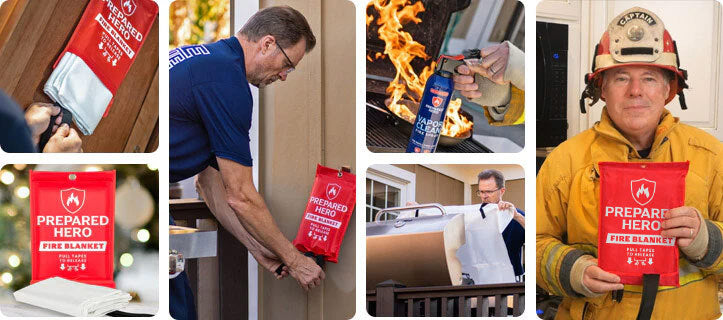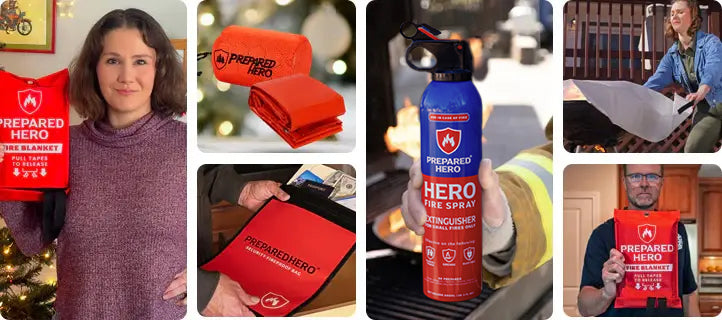Where you put your smoke detectors matters just as much as installing them. Proper placement makes sure they can detect...
Did you know? The death rate is 60% lower in homes with working smoke detectors than in those with non-working or no alarms. This makes smoke detectors one of the most vital tools for fire safety.
If your hard-wired smoke detector is beeping, it’s trying to grab your attention for a reason. A beeping hard-wired smoke detector could mean many things. No matter the cause, you should address the problem as soon as possible. After all, your smoke detector is your first line of defense against fire, and making sure it works could save lives.
What Is a Hard-Wired Smoke Detector?

Hard-wired smoke detectors are directly connected to your home’s electrical system. Instead of relying solely on batteries, they get their power from your household’s electrical wiring. They’re usually interconnected to a 120-volt circuit. Hard-wired smoke detectors are ideal for multi-level homes, apartments, and commercial buildings. This interconnectedness also adds an extra layer of protection to smaller homes.
When one alarm detects smoke, all wired to the same system will go off and alert everyone in the house. This interconnectivity is particularly useful in larger homes or multi-story buildings, where a fire may start in far corners. With hard-wired smoke detectors, everyone is warned at the same time, no matter where they are.
Hard-wired smoke detectors have backup batteries despite being connected to your home’s electrical system. The batteries ensure that the alarms will work if the power goes out. They take over once the main power supply is interrupted and are only used during power failures.
How Does a Hard-Wired Smoke Detector Work?

Unlike battery-powered smoke detectors, hard-wired smoke detectors get steady power from the house’s electricity. This prevents the alarm from failing due to dead batteries.
In homes built in the last ten years, many alarms are wired together to communicate with one another. This means that if one smoke detector goes off, all the others connected to the same circuit will also go off. This is especially helpful in big homes and buildings because it ensures that everyone, no matter where they are, will be alerted to the danger simultaneously. Whether the fire starts in the basement or the kitchen, everyone can hear the alarm and evacuate quickly.
Hard-wired smoke detectors contain three main wires: black, white, and red. The black wire provides 120 volts of power, the white wire is neutral, and the red wire connects the alarms. All smoke detectors operate off the same circuit from the fuse box and are usually connected using regular wires for three-way switches. The electrician then runs the red wire from alarm to alarm to interconnect them.
When one smoke detector senses smoke, it sends a nine-volt signal through the red wire to the other alarms. The other detectors then go off, ensuring everyone is warned at once. Most hard-wired smoke detectors can handle about a dozen units intercommunicating on the same red wire.
In addition, hard-wired smoke detectors use ionization or photoelectric technology to detect smoke. Ionization detectors sense changes in the air caused by smoke particles, while photoelectric detectors use light to detect smoke. Find out more about the types of smoke detectors here.
Home security or monitoring systems can sometimes be integrated with hard-wired smoke detectors. This lets you monitor your house or building remotely, like when you’re at work or on vacation.
Why Is My Hard-Wired Smoke Detector Beeping?

Your hard-wired smoke detector is beeping because it’s trying to tell you something important. A beeping sound usually points to one of three common issues: a dead backup battery, dust buildup, or an old or malfunctioning detector. Find out more about these common issues and how to fix them below:
1. Dead Backup Battery
While hard-wired smoke detectors are connected to your home's electrical system, they still have a backup battery so they can work during power outages. If the backup battery runs low, the detector will emit a high-pitched chirp to warn you. It also means the battery can no longer hold a charge and should be replaced. You should address this issue immediately because a dead battery prevents the detector from functioning properly.
Solution: Replace the backup battery. You can do this yourself or ask a professional to do it. If you go the DIY route, turn off the power first. This helps prevent any electrical issues. Then, remove the battery cover from the smoke detector and take the old battery out. Replace it with a new nine-volt battery. Seal it properly and press the test button to make sure the alarm works. If the chirping continues after replacing the battery, there’s probably another problem.
2. Dust Inside the Detector
Dust is a surprisingly common issue with smoke detectors. Dust and other debris can accumulate inside the hard-wired smoke detector since they’re mounted on the ceiling or high on a wall. The dust may enter the detector’s sensing chamber and interfere with its ability to work. This also causes it to beep and trigger false alarms.
This issue often occurs in places with high dust levels (e.g., areas near construction sites and deserts) or during seasons when dust accumulates (e.g., spring because of increased pollen from flowering plants and trees. Dust buildup might be the culprit if you’ve noticed the alarm going off without apparent cause.
Solution: Clean your smoke alarm. Turn off the power first. Then, remove the smoke alarm from its bracket and gently vacuum or brush its exterior. Next, clean the inside and give special attention to the vents. Gently wipe the smoke alarm using a microfiber. Once done, put the alarm back on its mount and test the alarm. If the chirping stops, dust is the problem. If it doesn’t, the problem likely lies elsewhere.
3. Malfunctioning or Old Detector
Like most electronic devices, smoke detectors don’t last forever. After about ten years, their internal components will start to fail. If your hard-wired smoke detector is beeping after replacing the battery and cleaning out the dust, it might just be old. Detectors over a decade old are often unreliable because they’re prone to this issue.
But if your hard-wired smoke detector is new, an internal malfunction or defect is probably causing the beeping. Whether it’s due to a malfunction or old age, address the issue immediately.
Solution: Check the manufacturing date on your hard-wired smoke detector. It’s usually printed on the back. It’s time to replace the entire unit if it's older than ten years. If your smoke detector is relatively new but beeping without smoke, call a certified technician to inspect the device. They can pinpoint the root cause and fix or replace the unit if needed.
How to Maintain Your Hard-Wired Smoke Detector

While frustrating, a beeping hard-wired smoke detector is a good reminder to keep up with regular maintenance. Taking care of your smoke detector can save you from many headaches. Here’s how to keep your hard-wired smoke detector in top shape:
1. Test It Monthly
Test your hard-wired smoke detector once a month to ensure it works properly. This only takes a minute, and all you have to do is press the test button. You should hear a loud sound right away. Check for dust buildup, low battery, or malfunction if it doesn't release a sound.
2. Replace the Backup Battery Annually
Even though your hard-wired smoke detector draws power from your home’s electrical system, it still has a backup battery. This battery kicks in during a power outage, so you should replace it when it starts running low. Instead of waiting for that annoying chirp, keep track of when you last replaced the batteries. Then, pick a date every year when you’ll replace the batteries.
3. Clean It Regularly
Dust and dirt can build up inside your smoke detector, which can cause false alarms or prevent it from detecting smoke properly. Clean your hard-wired smoke detector at least once every six months. Use a soft brush or a vacuum cleaner at the lowest setting to gently remove dust. Be careful not to damage the detector while cleaning.
4. Check the Expiration Date
Most hard-wired smoke detectors last for approximately ten years. After that, their sensors may not work as effectively. Check the back of your smoke detector for the manufacturing date. Replace it as soon as possible if it's older than ten years. Find out
5. Test the Interconnect Feature
Test the interconnect feature each month to make sure all alarms go off when one is triggered. Press the test button on one smoke detector and check if the others beep, too. Doing this ensures everyone will be alerted in case of a fire.
6. Keep It Away from Heat Sources
While it needs to be on the ceiling or high on a wall, placing your hard-wired smoke detector too close to a heat source can cause false alarms. Similarly, avoid putting it near vents where air currents might cause issues.
7. Call a Professional
Your smoke detector probably needs a professional inspection if it starts acting up. A qualified technician can inspect the wiring, make sure everything is connected properly, and replace faulty units if needed.
How Do I Stop My Hard-Wired Smoke Detector From Beeping?

A beeping hard-wired smoke detector can be frustrating, especially when you're not sure what's causing it. Fortunately, the issue is usually easy to fix. Do the following steps to stop your hard-wired smoke detector from beeping:
Check the Battery
Check the backup battery to see if it’s running low. If it is, simply remove the cover, take the old battery out, and replace it with a new one. Then, press the test button to see if the beeping stops. If it keeps beeping, try cleaning the smoke detector or resetting the alarm.
Clean the Detector
Dust and debris can build up inside your hard-wired smoke detector and cause it to malfunction. The buildup can block the sensor and cause annoying, constant beeping. Fix this issue by cleaning your hard-wired smoke detector using a brush or vacuum. Find out more about cleaning your smoke alarm here.
Reset the Alarm
Your hard-wired smoke detector might still beep after you clean it or change the battery. This happens because of a residual charge in the system. It is also more common when changing the battery. Fix this by removing the old battery and holding the test button for 15 seconds to drain any residual charge. Then, put in the new battery. This should stop the beeping if it’s related to a residual charge.
Replace the Detector
If none of the solutions above work, your smoke detector could be at the end of its life. Most hard-wired smoke detectors last up to a decade. If yours is older, replace it.
Why Is My Hard-Wired Smoke Alarm Beeping Without a Battery?

Your hard-wired smoke alarm is beeping without a battery because it is no longer working. If it beeps without a battery, the battery is not the problem. It is likely an internal issue that causes the detector to give false alarms. It’s also possible that the hard-wired smoke alarm is past its ten-year life.
Why Does My Hard-Wired Smoke Alarm Keep Going Off?

Your hard-wired smoke alarm keeps going off because of low battery, dust buildup, old age, or malfunction.
When the backup battery runs out of juice, the hard-wired smoke alarm will beep to signal that the battery needs to be replaced. Dust can also interfere with the sensor and trigger constant beeping. Old age can also cause the alarm to go off on its own. Lastly, issues with the wires and sensor can cause your hard-wired smoke alarm to malfunction and go off.
Conclusion
Knowing why your hard-wired smoke detector beeps is crucial to your safety. Whether it’s a low battery, dust buildup, old age, or malfunction, addressing the problem quickly ensures your loved ones stay safe.
Plus, smoke detectors are one of your first lines of defense against fire. Keeping yours in working condition could make all the difference in a fire emergency. In addition to smoke detectors, tools like fire blankets and fire sprays add a layer of protection for your family. These tools help contain small fires before they spread, giving you more time to escape or call for help.
Working smoke detectors and fire safety tools are essential for any home. Don’t wait for an issue to get worse—stay proactive, and you’ll keep your home safe. Stay prepared, hero!


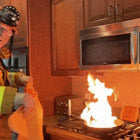 Fire
Fire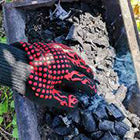 Safety
Safety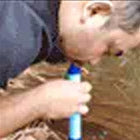 Survival
Survival Protection
Protection New
New
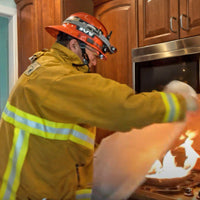 Fire
Fire Safety
Safety Survival
Survival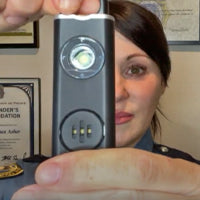 Protection
Protection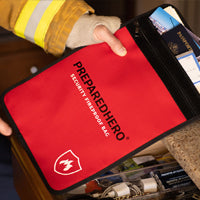 New
New






